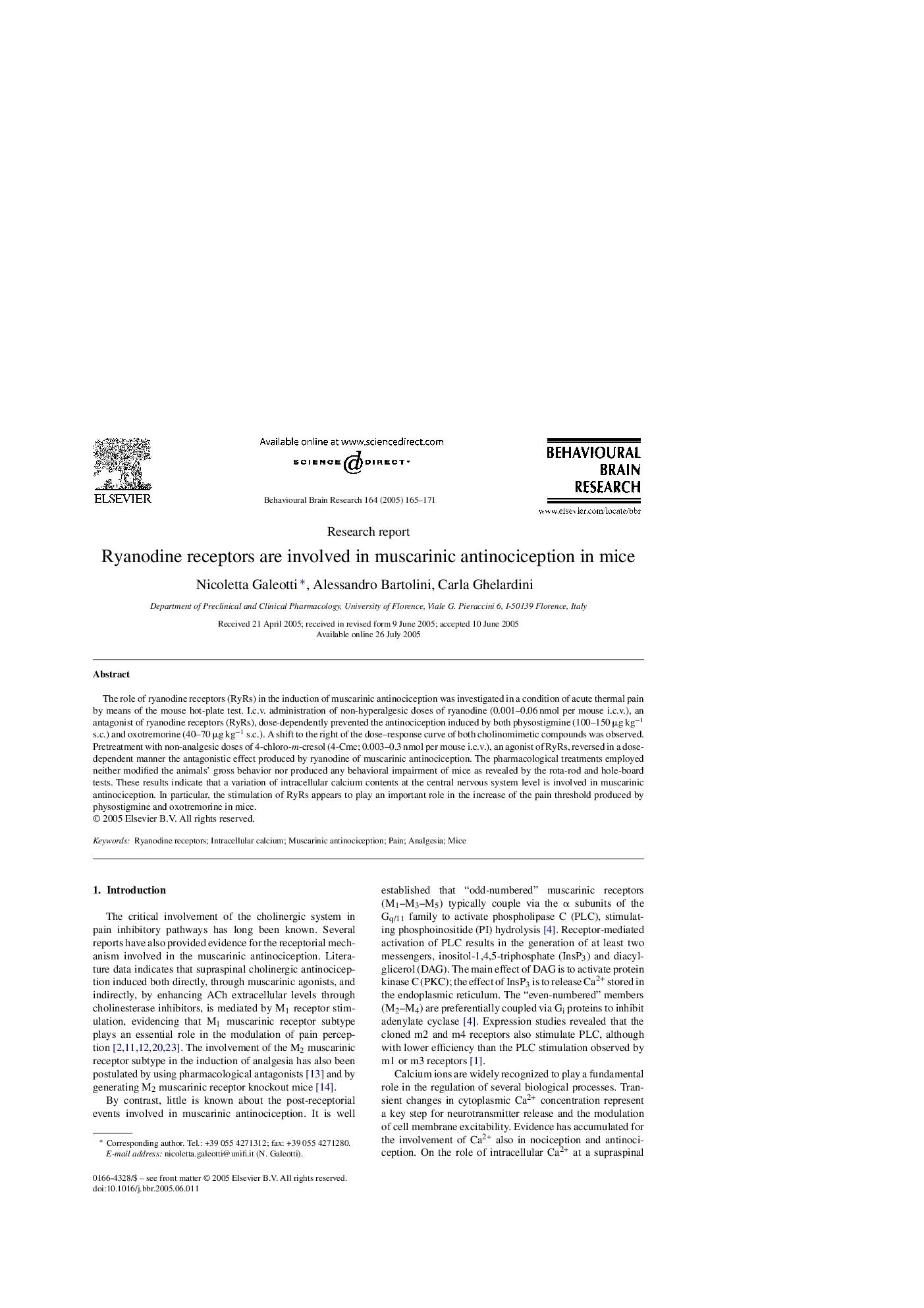| کد مقاله | کد نشریه | سال انتشار | مقاله انگلیسی | نسخه تمام متن |
|---|---|---|---|---|
| 9406371 | 1290113 | 2005 | 7 صفحه PDF | دانلود رایگان |
عنوان انگلیسی مقاله ISI
Ryanodine receptors are involved in muscarinic antinociception in mice
دانلود مقاله + سفارش ترجمه
دانلود مقاله ISI انگلیسی
رایگان برای ایرانیان
کلمات کلیدی
موضوعات مرتبط
علوم زیستی و بیوفناوری
علم عصب شناسی
علوم اعصاب رفتاری
پیش نمایش صفحه اول مقاله

چکیده انگلیسی
The role of ryanodine receptors (RyRs) in the induction of muscarinic antinociception was investigated in a condition of acute thermal pain by means of the mouse hot-plate test. I.c.v. administration of non-hyperalgesic doses of ryanodine (0.001-0.06 nmol per mouse i.c.v.), an antagonist of ryanodine receptors (RyRs), dose-dependently prevented the antinociception induced by both physostigmine (100-150 μg kgâ1 s.c.) and oxotremorine (40-70 μg kgâ1 s.c.). A shift to the right of the dose-response curve of both cholinomimetic compounds was observed. Pretreatment with non-analgesic doses of 4-chloro-m-cresol (4-Cmc; 0.003-0.3 nmol per mouse i.c.v.), an agonist of RyRs, reversed in a dose-dependent manner the antagonistic effect produced by ryanodine of muscarinic antinociception. The pharmacological treatments employed neither modified the animals' gross behavior nor produced any behavioral impairment of mice as revealed by the rota-rod and hole-board tests. These results indicate that a variation of intracellular calcium contents at the central nervous system level is involved in muscarinic antinociception. In particular, the stimulation of RyRs appears to play an important role in the increase of the pain threshold produced by physostigmine and oxotremorine in mice.
ناشر
Database: Elsevier - ScienceDirect (ساینس دایرکت)
Journal: Behavioural Brain Research - Volume 164, Issue 2, 7 November 2005, Pages 165-171
Journal: Behavioural Brain Research - Volume 164, Issue 2, 7 November 2005, Pages 165-171
نویسندگان
Nicoletta Galeotti, Alessandro Bartolini, Carla Ghelardini,